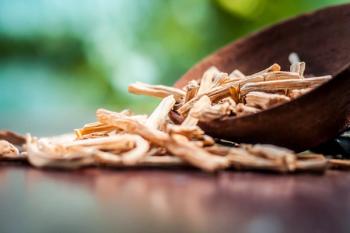
CBD and elderberry see triple digit growth in mainstream channel, says HerbalGram
Using US retail sales data provided by SPINS and the Nutrition Business Journal (NBJ), HerbalGram reports an 8.6% increase in total sales in 2019, compared to the previous year.
HerbalGram, published by the American Botanical Council (Austin, TX), released its annual
Total retail sales also increased in each of NBJ’s three market channels of mass market (+9.4%), natural and health food (+3.6%), and direct sales (+11.5%), for the 11th consecutive year. The mass market channel has been seeing higher sales growth than the natural and health food channel since 2016, but the latter still exhibits higher total sales ($2.904 billion) than mass market ($1.704 billion) which has been consistent since 2005. Direct sales maintain the highest total sales ($4.995 billion) and sales growth compared to the other two channels.
The most notable sales increases of individual herbs were in the U.S. mainstream multioutlet channel, with cannabidiol (CBD) and elderberry seeing triple digit growth. Elderberry landed in the top three best selling herbs, growing 110.8% to $107.6 million in total sales, exceeding turmeric in sales which held the number three slot in 2018. CBD, for its part, is finally among the mainstream channel’s 40 top selling herbal ingredients after skyrocketing 872.3% to reach $35.9 million in sales. Ashwagandha continues to grow in sales, seeing the third highest sales growth in the mainstream channel of 45.2% to reach $10.8 million in sales, compared to $7.4 million in 2018.
All these herbs have also seen growth in the natural channel, but less dramatically so. CBD remains the top selling ingredient in the natural channel with total sales of $90.7 million, an increase of 71.3% from 2018, and elderberry holds its number three spot with $31.9 million in sales, an increase of 20.5% since 2018. Ashwagandha grew 7.2% to $13.6 million. After CBD, the category of “mushrooms (other)” experienced the largest sales growth in the natural channel, increasing 33.2% to $10.6 million from 2018. This category includes lion’s mane (Hericium erinaceus, Hericiaceae), turkey tail (Trametes versicolor, Polyporaceae), and combinations thereof. Individual mushrooms reishi (Ganoderma lucidum, Ganodermataceae) and cordyceps (Cordyceps militaris, Cordycipitaceae) experienced the fourth and fifth largest sales increases in the natural channel of 13.5% and 8.2%, respectively.
“These retail sales data demonstrate the continued increase in consumer interest in and demand for herbal dietary supplements, representing a steadily growing trend toward natural health as a solid lifestyle shift, especially proactive attempts to enhance immunity,” said Mark Blumenthal, founder and executive director of ABC and editor-in-chief of HerbalGram, in a press release.
Newsletter
From ingredient science to consumer trends, get the intel you need to stay competitive in the nutrition space—subscribe now to Nutritional Outlook.




